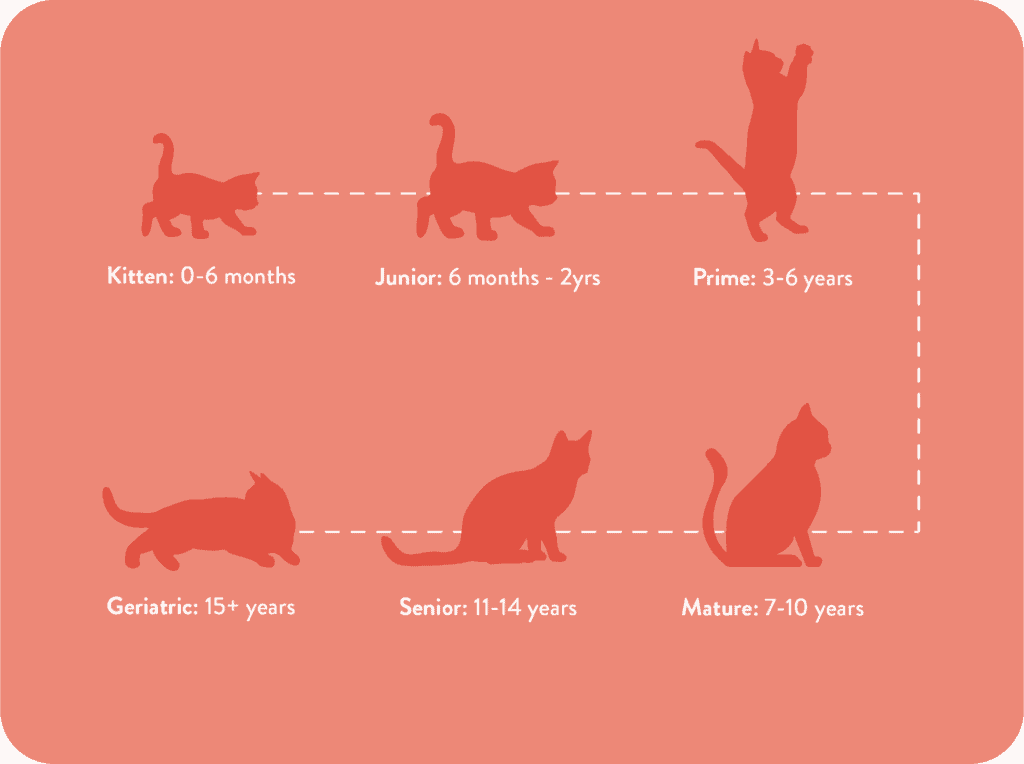Cat & kitten feeding guide
Cats must eat meat or fish in their daily diet. Vegetarianism is generally not considered an option for cats.
Life stages of cats

Feeding through the stages
Feeding a healthy kitten starts even before they are born! Start to feed the pregnant mother on kitten food about 4 weeks before they are due to give birth. We recommend Burgess Complete Kitten. This will help the litter to be born at a healthy weight. It also helps to reduce the risk of health conditions. When the litter has been born, continue to feed the mother the same kitten food while she is providing milk. This helps to make sure the kittens are being provided with the extra nutrients they need.
From the age of four weeks, you can gradually introduce and encourage your kitten onto solid cat food, supplementing their mother’s milk. Try very small amounts at first, softening any hard cat food with water and mashing it up.
Gradually increase the amount they eat as they grow. Follow the on-pack guidelines to ensure you are feeding the correct amount for the weight of your kitten. A kitten food should typically be fed up to the age of 12 months. There should always be plenty of fresh clean water available to drink.
A complete kitten food should have:
• Smaller kibble for kitten-sized mouths and to make eating and digestion easier.
• A high level of digestible proteins (around 32%) to assist growth and muscle development.
• Extra calcium for strong bones and teeth.
Foods to avoid

Vaccinations can prevent illness in your pet so regular visits to the vet are crucial.
Wir empfehlen
What is neutering?

To help you find the right food for your rabbits have a look at our product range.
Alternatively you can call our free consumer care line on +44 1405 862241 between 9am and 5pm, Monday to Friday. Our dedicated team of experts will help you make the right choice.
If you should have any concerns about the health of your rabbits, always consult a vet.
